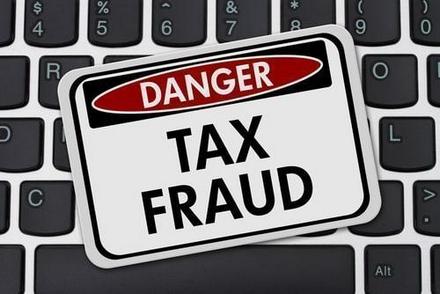TELEPHONES ANSWERED 24 HOURS A DAY
Recent Blog Posts
What Is a Mistrial – and What Happens Afterward?
 Those Illinois residents who have either had experience with the court system or who are casual followers of court cases know that the vast majority of criminal proceedings end in a verdict (either as the result of plea negotiations or a trial) wherein the court either finds the defendant guilty or not guilty of the charged offense. There are a few trials, however (most recently and notably, the criminal trial of comedian Bill Cosby), where the case does not end with a verdict. Instead, the court finds that a mistrial has occurred.
Those Illinois residents who have either had experience with the court system or who are casual followers of court cases know that the vast majority of criminal proceedings end in a verdict (either as the result of plea negotiations or a trial) wherein the court either finds the defendant guilty or not guilty of the charged offense. There are a few trials, however (most recently and notably, the criminal trial of comedian Bill Cosby), where the case does not end with a verdict. Instead, the court finds that a mistrial has occurred.
While it may seem like a trial that results in no verdict may be beneficial for you, the defendant charged with the crime, such a finding may not be as advantageous as may first appear.
When Is a Mistrial Declared in an Illinois Criminal Case?
Most mistrials occur because of one of two reasons: either the jury is unable to come to a unanimous decision concerning the guilt or innocence of the accused, or some fundamental error occurred during the trial that made it impossible for the defendant to receive a fair trial. Some examples of the latter might include:
Child Identity Theft
 Among the many identity theft activities that fall under the federal crime umbrella, child identity theft seems especially brazen, although the benefits for those who commit this type of crime are no different than the advantages made possible by other forms of identity-related crimes. Any form of identity theft enables an offender to access stolen funds and services. Just as with an adult’s social security number, a child’s social security number can allow an offender to apply for a host of governmental benefits, as well as open a variety of credit card and bank accounts. It can also be used to apply for loans, obtain health care services, and even rent a place of residence.
Among the many identity theft activities that fall under the federal crime umbrella, child identity theft seems especially brazen, although the benefits for those who commit this type of crime are no different than the advantages made possible by other forms of identity-related crimes. Any form of identity theft enables an offender to access stolen funds and services. Just as with an adult’s social security number, a child’s social security number can allow an offender to apply for a host of governmental benefits, as well as open a variety of credit card and bank accounts. It can also be used to apply for loans, obtain health care services, and even rent a place of residence.
Common Sources Used to Retrieve Personal Information
When children are enrolled in school, their educational records are often sourced by identity thieves to obtain sensitive personal information, particularly social security and address details. System security breaches as well as instances of improper filing, storage, and disposal of both electronic and paper educational records on school property can place such information at risk.
Online Security Weaknesses and Their Link to Identity Theft Incidents
 In today’s technology-driven world, it comes as no surprise that a majority of identity theft crimes stem from our use of the internet, laptops, and other communicative devices. We keep an overwhelming amount of personal information on such devices, making identity theft opportunities all too easily accessible to those looking to take advantage at any given moment. The forms of identity theft crimes committed on a daily basis are vast and plentiful, as are the mediums through which they take place.
In today’s technology-driven world, it comes as no surprise that a majority of identity theft crimes stem from our use of the internet, laptops, and other communicative devices. We keep an overwhelming amount of personal information on such devices, making identity theft opportunities all too easily accessible to those looking to take advantage at any given moment. The forms of identity theft crimes committed on a daily basis are vast and plentiful, as are the mediums through which they take place.
Personal Technology Weak Spots
If you or someone you know has been accused of being involved in an identity-theft related crime, there is a good chance the claim was prompted by an illegal breach of personal information, derived from an insecure technological source. There are a number of unsecured technological devices, networks, and online scams that are often the source of stolen personal information, including the following:
Avoid Federal Mortgage Fraud Charges
 Purchasing a home is one of the largest investments most people make within their lifetime. By entering into a mortgage with a lending company, you agree to make regularly scheduled payments for a set duration of time, typically around 30 years. The decision is a substantial one with long-lasting repercussions, which lends itself to high-stress during the application process. When stress levels rise, our brain can sometimes cease to function as clearly as we would like causing an increase in mistakes. Errors on mortgage documents are something to avoid. Otherwise, you may face federal mortgage fraud charges.
Purchasing a home is one of the largest investments most people make within their lifetime. By entering into a mortgage with a lending company, you agree to make regularly scheduled payments for a set duration of time, typically around 30 years. The decision is a substantial one with long-lasting repercussions, which lends itself to high-stress during the application process. When stress levels rise, our brain can sometimes cease to function as clearly as we would like causing an increase in mistakes. Errors on mortgage documents are something to avoid. Otherwise, you may face federal mortgage fraud charges.
What Is Mortgage Fraud?
Mortgage fraud applies to individuals and professional brokers, alike. Deception occurs anytime a party misrepresents the facts on a mortgage application or document with the intent to obtain a mortgage that would otherwise have been obtainable had the opposing party known the truth. The deceptive practice from either side is punishable at a federal level.
What Is Tax Identity Theft and What Are the Repercussions?
 Under the federal crime umbrella, tax-related crimes that involve stealing someone’s identity are taken very seriously, just like every other form of identity theft. Anytime someone knowingly, willingly collects someone’s personal information, such as a name and social security number, to gain or conceal profit, they are committing a federal crime and are subject to severe penalties.
What Is the Purpose Behind Tax-Related Identity Theft?
Under the federal crime umbrella, tax-related crimes that involve stealing someone’s identity are taken very seriously, just like every other form of identity theft. Anytime someone knowingly, willingly collects someone’s personal information, such as a name and social security number, to gain or conceal profit, they are committing a federal crime and are subject to severe penalties.
What Is the Purpose Behind Tax-Related Identity Theft?
While the concept behind stealing someone’s personal information is the same for all forms of identity theft, the purpose behind tax-related identity theft differs. Social security numbers are extremely valuable pieces of personal identification. Criminals use them to open up new credit card accounts, manipulate healthcare policies and a variety of other insurance policies, and to access all kinds of funds that do not belong to them. When a social security number is used for tax-related theft purposes, the goal behind the crime is usually to steal a tax refund or obtain a job of some sort.
What You Should Know about the Federal Criminal Appeal Process
 If you were found guilty of a federal crime although you were innocent, it might not be your fault. All too often unjustly accused citizens are carted off to prison due to a lack of a convincing attorney. Many find out too late that assigned public defenders are not the best option as many of them are overworked, preventing the one-on-one experience as well as the in-depth investigation necessary to build a credible defense case. You may be eligible for an appeal of the decision. To do so, you will require someone who is available to give you their utmost attention and build an aggressive and persuasive argument on your behalf. The federal criminal appeals process is confusing and daunting to those unfamiliar with the process; therefore it is vital to find an attorney who specializes in federal criminal law.
If you were found guilty of a federal crime although you were innocent, it might not be your fault. All too often unjustly accused citizens are carted off to prison due to a lack of a convincing attorney. Many find out too late that assigned public defenders are not the best option as many of them are overworked, preventing the one-on-one experience as well as the in-depth investigation necessary to build a credible defense case. You may be eligible for an appeal of the decision. To do so, you will require someone who is available to give you their utmost attention and build an aggressive and persuasive argument on your behalf. The federal criminal appeals process is confusing and daunting to those unfamiliar with the process; therefore it is vital to find an attorney who specializes in federal criminal law.
This Is Not A Retrial
Your attorney presented all of the evidence available to the judge within the presence of court reporters, witnesses, and a jury. The appellate court is vastly different. New evidence is inadmissible at this point, and the entire process is through the transferring of a series of forms, files, and existing evidence. In this “courtroom,” the legality of the original decision is under contestation. Both sides of the argument file briefs to the appellate judge both raising concerns and responding to concerns of legal errors that occurred in the original hearing.
Common Methods Used to Commit Health Care Fraud
 There is an abundance of white collar crimes that authorities must deal with on a daily basis, from embezzlement and money laundering to mortgage fraud and classic cases of identity theft. All these crimes wreak havoc on the victims and businesses they affect, and the results are often devastating for everyone involved. Health care fraud is uniquely troubling in the sense that it can be a very personal yet impersonal crime, with repercussions that are far-reaching and difficult to repair.
There is an abundance of white collar crimes that authorities must deal with on a daily basis, from embezzlement and money laundering to mortgage fraud and classic cases of identity theft. All these crimes wreak havoc on the victims and businesses they affect, and the results are often devastating for everyone involved. Health care fraud is uniquely troubling in the sense that it can be a very personal yet impersonal crime, with repercussions that are far-reaching and difficult to repair.
The Healthcare System as a Platform for Fraud
With the overwhelming pool of money involved in the healthcare industry, it comes as no surprise that criminals often take advantage of the system and tamper with healthcare policies in order to achieve financial gain. It is easy to see how the appeal of these opportunities draws criminal offenders to prey on unsuspecting victims in the industry, as the business itself is a prime platform for fraudulent activity. These activities come with serious cost, however. All forms of health care fraud are taken very seriously by the Federal Bureau of Investigation (FBI) and are considered federal crimes, which translate to severe consequences for an offender’s record and reputation.
Identity Theft Acts that Trigger Criminal Charges
 While the federal white collar crime known as identity theft is nothing new, statistics continue to illuminate the fact that identity fraud is an ever-growing problem across the nation, and across the globe. According to the FBI, the actual number of identity theft crimes committed every day is believed to be much higher than the publicly reported statistics we hear about.
While the federal white collar crime known as identity theft is nothing new, statistics continue to illuminate the fact that identity fraud is an ever-growing problem across the nation, and across the globe. According to the FBI, the actual number of identity theft crimes committed every day is believed to be much higher than the publicly reported statistics we hear about.
The Federal Trade Commission reports that between the years 2010 and 2015 alone, identity theft complaints nearly doubled. The nature of these crimes can vary greatly, however, and law enforcement agencies often report the cases differently. This can make it difficult to consistently and accurately report every case for statistical purposes, so we often only hear about a fraction of the true number of identity theft cases that take place each year. For example, some identity theft crimes involve credit card fraud, while others involve mail theft or a combination of these types of fraud.
Child Pornography Charges: What Happens on Your Computer Is Not Private
 Child pornography is a taboo topic across the United States. While it is important to protect our children, it is also important to protect and defend the rights of the American people. All too often, unsuspecting individuals become engaged with situations that can get them into a heap of legal trouble. We see stories popping up all over social media and the news that so-and-so paid untold amounts of money in fines and jail time for their child pornography case. One starts to question how all of these people are getting caught by the police? What happens on your computer should stay there. However, this right diminishes at an alarming rate.
Child pornography is a taboo topic across the United States. While it is important to protect our children, it is also important to protect and defend the rights of the American people. All too often, unsuspecting individuals become engaged with situations that can get them into a heap of legal trouble. We see stories popping up all over social media and the news that so-and-so paid untold amounts of money in fines and jail time for their child pornography case. One starts to question how all of these people are getting caught by the police? What happens on your computer should stay there. However, this right diminishes at an alarming rate.
How Law Enforcement Obtains Evidence
Law enforcement is becoming increasingly more forceful and deceitful in their tactics to gather information. Someone who has no inclination they are under surveillance may end up with a rude awakening when officers appear at the front door, claiming to have evidence of illegal activity. Some methodologies utilized in apprehending suspects include:
Conspiracy at a Federal Level
 Conspiracy is a topic that on which films and television shows are created. Thousands of novels fly off the shelf annually with titles related to dramatic conspiratorial plotlines. The word in and of itself sounds intriguing, but what exactly does it mean? The term in itself encompasses a wide variety of behaviors, requiring further explanation. Conspiracy is a charge discussed at a federal level and is rarely considered an offense at the lower state level, which means that it has substantial penalties should a conviction occur. Let us clarify a few of the details.
Conspiracy is a topic that on which films and television shows are created. Thousands of novels fly off the shelf annually with titles related to dramatic conspiratorial plotlines. The word in and of itself sounds intriguing, but what exactly does it mean? The term in itself encompasses a wide variety of behaviors, requiring further explanation. Conspiracy is a charge discussed at a federal level and is rarely considered an offense at the lower state level, which means that it has substantial penalties should a conviction occur. Let us clarify a few of the details.
What Is Conspiracy?
A conspiracy occurs anytime two or more individuals put their heads together and agree to commit a crime and for one of those individuals to act in a way to further this plan. Prosecutors enjoy attempt conspiracy charges because the spectrum of behavior is comparably broad and the burden of proof is lesser than other crimes. A jury must believe that the defendant merely knew about the plan for the offense to declare the defendant guilty, rather than needing evidence that a comprehensive agreement occurred.




